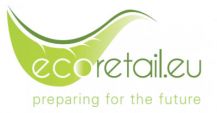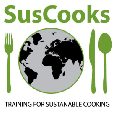Ecology & Organic TradeActual Projects & Referencies
Learning Place BioFarm
On 1 September 2016, the Institute equalita launched another project for learning on a farm. The goal is to develop an e-learning course and an interactive online portal for „Learning place BioFarm" for teachers, farmers, coordinating agencies, NGO employees and all other stakeholders.
Educational visits to organic farms offer an alternative and innovative space that allows a formal and informal learning that takes place outside the conventional learning environment. A special focus is laid on the integration of disadvantaged young people and refugee children and families. The partnership comprises eight institutions from seven countries.
Preparing for the Future - the Code for Organic Retailing Practice
Institute equalita leads since September 2014 the project "Preparing for the Future" in the context of the EU program Erasmus+. The aim is the development of a European "Code of Good Practice Organic Retailing" and an e-learning course for the qualification of managers and employees in organic and conventional trade will be developed to support the integration of this code and its principles into everyday business practice.
Facing all the problems caused by globalization, financial crises and economical and social deregulations ethical basics for business become more and more important. The organic trade branch recognized that organic regulations and certificate alone is not enough to assure the authenticity of organic products
Sustainability in professional Cooking
Institut equalita has carried out a Leonardo da VInci Project from 2013 to 2015 under the title "Development and transfer of training courses and materials for sustainability in professional cooking" with partners from Austria, Bulgaria, Czech Republic, Germany, Italy, Slovenia and United Kingdom.
The concept of sustainable development is usually specified by the formulation of enviroCooking Surveynmental, economic and social goals. In the field of nutrition the aspect of health has a central importance and is therefore considered a separate fourth dimension. Especially in catering can sustainability be made tangible and concrete to grasp. The implementation of a "sustainable cuisine" places new challenges on cook.....




